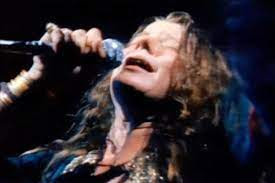Frost* are an English (from East Sussex) neo progressive rock supergroup, formed in 2004 by Jem Godfrey and members of Arena, Kino, and IQ. Frost* released their first studio album, Milliontown, in 2006, before splitting up. In 2008, Godfrey reformed Frost*, adding Darwin's Radio vocalist and guitarist, Declan Burke, to the lineup, and released their second album, Experiments in Mass Appeal. The band disbanded again in 2011, to reunite later in September, after a brief hiatus.
Frost* released their long-awaited third studio album 'Falling Satellites' on 27 May 2016, to critical acclaim and followed up with their fourth album 'Day and Age' in 2021.
Genres: Neo progressive rock, electronic rock, pop rock
Years active: 2004-2006, 2008-2011, 2011-present
Band history:
Formation (2004–2005)
Frost* was formed in September 2004, by songwriter, producer and musician Jem Godfrey - better known to the wider world for his work creating chart-topping pop hits for bands including Atomic Kitten - when he made a conscious decision to return to his own musical past writing and playing progressive music, in the band Freefall.
After writing and recording material on his own for several months, and listening to a broad selection of contemporary progressive music, Godfrey first approached John Mitchell of Arena, The Urbane and Kino, (and currently lead guitarist and singer for It Bites). Mitchell then introduced Godfrey to John Jowitt (also of Arena, and additionally IQ and Jadis), subsequently leading to meeting Andy Edwards (ex Robert Plant and IQ). John Boyes, Godfrey's former band-mate in Freefall in the 1990s, and from the band Rook, had already performed significant rhythm guitar work on the early recordings. With the lineup in place, recording of the first album was completed during winter 2005.
When asked in an interview why there is an asterisk next to the band name, Godfrey replied "That is a serving suggestion; if you get to put it on it means 'serve chilled'! or 'may contain nuts'!"
Milliontown (2006):
Frost*'s first album was named after the 26 minute long final track, Milliontown, inspired by the book The Apprentice by Gordon Houghton. The album was released in the United States on 18 July 2006 and in Europe on 24 July. The band went on a brief tour to play a selection from the album, supporting Pallas on a four date tour of the Netherlands and Germany in October 2006.
Dissolution, rebirth, Experiments In Mass Appeal (2006–2009):
More info: https://en.wikipedia.org/wiki/Frost*
Current members:
Jem Godfrey - vocals, keyboards, Chapman Railboard (2004-2006, 2008-2011, 2011-present)
John Mitchell - guitars, vocals (2004-2006, 2008-2011, 2011-present)
Nathan King - bass guitar, backing vocals (2009-2011, 2011–present)
Former members:
John Jowitt - bass guitar (2004-2006, 2008-2009)
Andy Edwards - drums (2004-2006, 2008-2011)
John Boyes - guitars (2004-2006)
Declan Burke - vocals, guitars (2008-2009)
Craig Blundell - drums (2009–2019)
Milliontown : https://youtu.be/PeMjPmN0rbo :
Milliontown Live: https://youtu.be/2U0dD4CLG_4 :
Discography:
Albums:
- Milliontown (2006)
- Experiments in Mass Appeal (2008)
- Falling Satellites (2016)
- Day And Age (2021)
Other:
- Frost* Tour Sampler (2008; only available on tour)
- FrostFest Live CD (2009)
- The Philadelphia Experiment (2010)
- The Rockfield Files (2013; available at The Merch Desk)
- Others EP (2020)
- 13 Winters collection (2020)
More info: https://en.wikipedia.org/wiki/Frost*


















